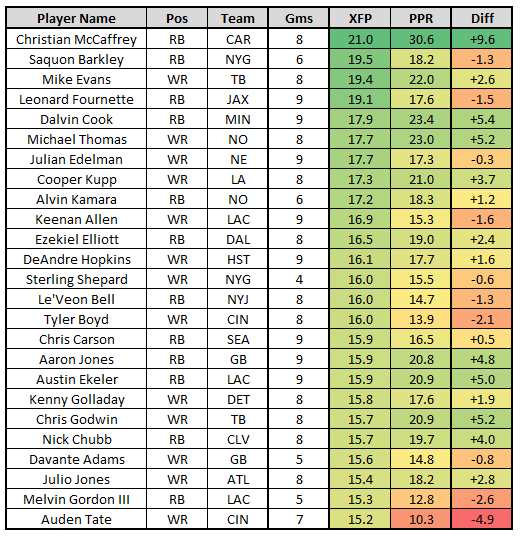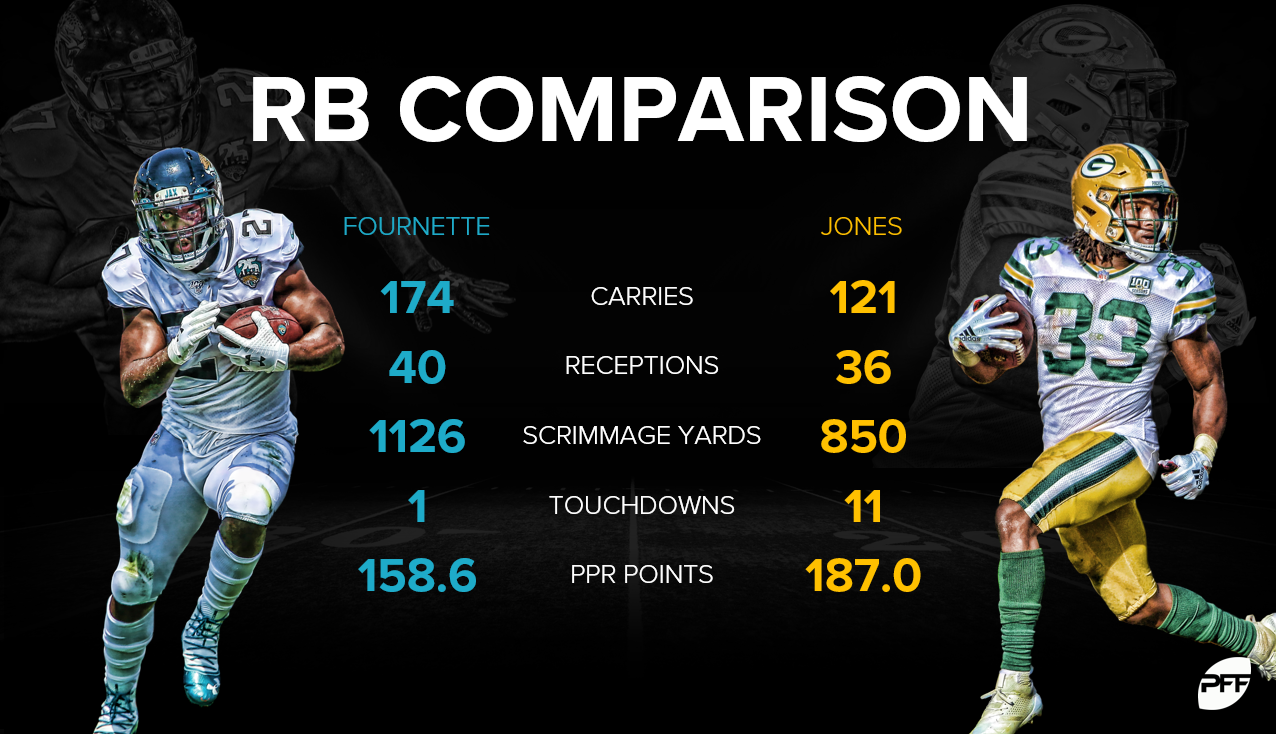Hello, and welcome to Week 10 of the Expected Fantasy Points Report. If you’re unfamiliar with expected fantasy points, you can read this in-depth explanation from the offseason. You can also read more about expected touchdowns.
Every week we’ll be using a 10-season sample of play-by-play data to calculate expected fantasy points from a player’s seasonal or weekly usage. We look at each target (by distance from the end zone and depth of target) and each carry (by distance from the end zone and down and distance) and add this up to determine how valuable a player’s role was for fantasy. We can contrast this with fantasy production to measure efficiency.
In layman’s terms, expected fantasy points measures the exact worth of a player’s volume – “how many points a player should have scored” given his workload, based on what the average player would have scored.
Through nine weeks of action, here are the top-25 players in expected fantasy points per game:
[Note: Full-season XFP is now available for download in spreadsheet form. We’ll be releasing it each week in our PFF Elite Facebook Group. This spreadsheet will also include valuable PFF-exclusive metrics like XTD, air yards, end zone targets, and more. If you’re not already an Elite subscriber I highly recommend joining.]

Christian McCaffrey, RB, Carolina Panthers
(XFP: 21.0, PPR: 30.6, Diff: +9.6)
Without exaggeration, McCaffrey is on pace to put together the greatest fantasy season of all-time. However, it’s also the most efficient fantasy season we’ve ever recorded (in our dataset that goes back to 2007). On top of a 21.0-point per-game expectation, which ranks seventh-best over this span, he’s outscoring his expectation by 9.6 fantasy points per game. That ranks well above even the next-best season: Chris Johnson’s 2009 (+7.9).
Aaron Jones, RB, Green Bay Packers
Leonard Fournette, RB, Jacksonville Jaguars
(Jones XFP: 15.9, PPR: 20.8; Fournette XFP: 19.1, PPR: 17.6)

Among all running backs, Jones ranks fourth (20.8) and Fournette 10th in fantasy points per game (17.6). If both players were perfectly average in touchdown efficiency, Fournette would rank fourth in fantasy points per game (20.7) and Jones would rank 10th (17.4). Essentially, Jones has gotten very lucky in the touchdown department (0.6 touchdowns per game over his expectation), while Fournette has gotten very unlucky (-0.5). I say “unlucky” rather than “inefficient,” because touchdown efficiency is more related to luck than skill, and expected touchdowns are better at predicting touchdowns than any other stat (including actual touchdowns).
Exclusive content for premium subscribers

WANT TO KEEP READING?
Dominate Fantasy Football & Betting with AI-Powered Data & Tools Trusted By All 32 Teams
Subscribe nowAlready have a subscription? Log in
Exclusive content for premium subscribers

WANT TO KEEP READING?
Dominate Fantasy Football & Betting with AI-Powered Data & Tools Trusted By All 32 Teams
Already have a subscription? Log in



 © 2025 PFF - all rights reserved.
© 2025 PFF - all rights reserved.